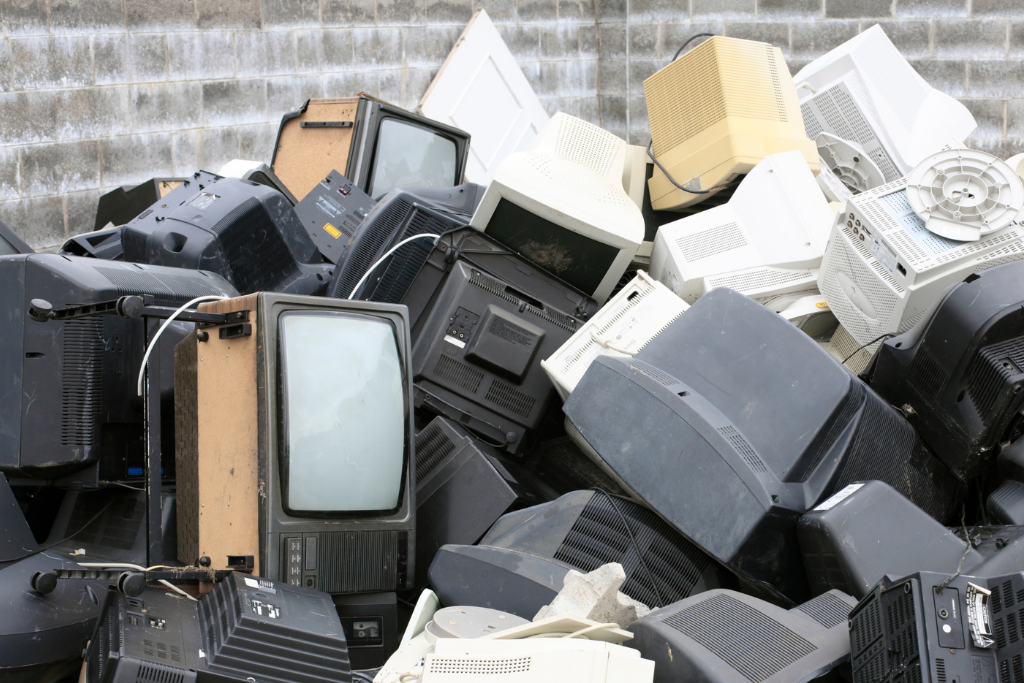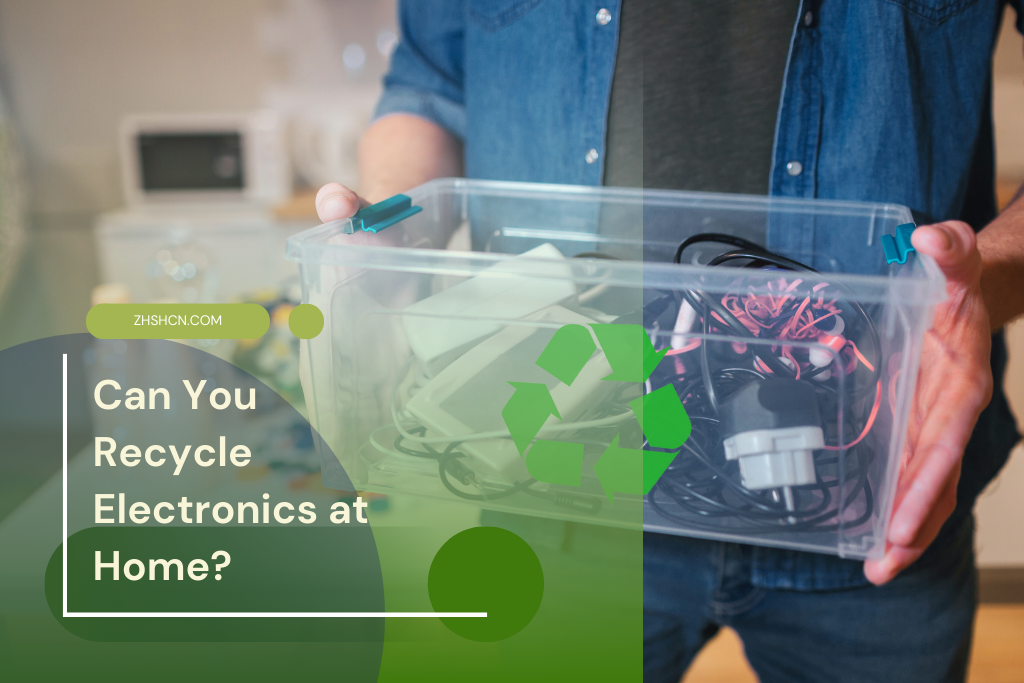Increasing volumes of electronic waste, or e-waste, have necessitated households to adopt conscientious strategies emphasizing recycling. Can You Recycle Electronics at Home? Paramount to these strategies is the understanding that not all e-waste can be treated like regular household waste, owing to the presence of harmful substances.
A straightforward way that households can begin to recycle electronics is by separating them from other forms of waste. Items such as computers, printers, mobile devices, audio and video equipment, and small home appliances contain elements detrimental to the environment when disposed of improperly. Hence, it is crucial to segregate these items and treat them as special waste.
Another method involves disposing of these items through specific collection points or recycling events. Many municipalities and cities offer free electronic collection events where people can drop off their unwanted electronics. These facilities often have agreements with recycling companies that ensure that all collected e-waste is recycled responsibly, preventing the harmful elements from ending up in landfills.
Moreover, selling or donating is an excellent option for devices that are still functioning. Numerous online platforms and brick-and-mortar stores buy used electronics, while various charities welcome donations. Not only does this method extend the lifespan of these devices and delay their entry into the waste system, but it also provides an opportunity for others who can’t afford new electronics to gain access to technology.
– Proper Disposal of Batteries and Small Electronic Devices
Disposing of batteries and small electronic devices is crucial in paving the way towards a greener and safer environment. First and foremost, these items should never be tossed out with regular household trash. Instead, they must be returned to the retailer, where designated collection points are often provided or dropped off at a recycling center. Many regions globally have implemented regulations to ensure that such devices are disposed of in an environmentally friendly manner.
Specialized electronic recycling services focus on segregating the toxic materials present in batteries, such as mercury, cadmium, and lead, safely and effectively. Such separation mitigates the harmful environmental impacts and maintains the sustainability of our planet. Knowing the local regulations and drop-off points in your city or community is prudent. Online resources can be very informative; some service providers even offer mail-in recycling options. Indeed, our responsible actions today will contribute significantly to the better environmental health of tomorrow.

– Repurposing Old Electronics
When considering the pile of old electronics, it is noteworthy that many of these items can be given a new lease on life through repurposing. This concept identifies innovative ways to use redundant or useless electronics, enabling us to minimize waste and reduce our environmental footprint. A defunct computer, for example, might seem like nothing more than a cumbersome piece of e-waste. However, with a bit of imagination and technical know-how, elements of the old system could be reshaped into valuable tools. The hard drive could be converted into an external storage device, or the casing could be transformed into an eclectic housing box for small objects.
In the same vein, other types of electronics can be similarly repurposed. An old television set might be converted into a unique fish tank, or a vintage radio transformed into a stylish bookshelf. Transforming these erstwhile devices into functional or decorative pieces reduces waste and paves the way for creative expression. It is noteworthy, however, that in endeavoring to repurpose old electronics, one should exercise caution due to the potential hazards posed by the internal components of these devices, such as toxic chemicals in batteries and carcinogens in certain types of plastic.
– Selling or Donating Unwanted Electronics
Upgrading to new electronic devices often leaves you with surplus electronics that are no longer useful for your needs. Rather than relegating these to gathering dust in a drawer or cluttering up your home, selling these devices enables you to recuperate some of the original cost. Finding a reputable platform to sell used electronics online ensures a smooth, fair transaction. Sites such as eBay, Swappa, and Gazelle cater specifically to secondhand electronics sales. Besides, retail programs like Apple Trade In also offer opportunities for selling used devices.
On the other hand, donation is an alternative, particularly for electronics that may not have a significant resale value. Various non-profit organizations engage in the practice of refurbishing and repurposing donated electronics. These devices then find a new lease of life in educational settings or are utilized by those unable to afford brand-new systems. Do remember to wipe any personal data before donating these devices. Organizations like The World Computer Exchange, Computers with Causes, and the National Cristina Foundation all welcome donations of unwanted electronics and ensure they are put to meaningful use.
Local and Online Resources for Electronics Recycling
The proliferation of technology brings a mass generation of electronic waste, and harbors immense potential for recycling and reuse. Effectual management of discarded electronics can evade the profound ecological fallout while providing avenues to conserve precious resources. Recognizing and leveraging the resources to recycle electronics locally and online is elemental in this scenario.
Physical, locally operated recycling units are accessible in many urban and suburban areas. These centers often offer proper disposal services for various electronic devices, from mobile phones to large appliances. Some municipal waste facilities also propose special collection events for electronics. In tandem with local resources, many online sites offer avenues for electronics recycling. Online outlets such as “e-Stewards” can connect individuals to responsible recyclers. Other internet platforms like “Earth911” provide extensive, searchable databases that help locate recycling facilities specific to different electronics. These reliable online resources can help navigate the intricacies of responsible electronics recycling.
What options do I have for recycling electronics at home?
There are several methods to recycle electronics at home. This can range from using local recycling programs, returning the items to the manufacturer, or mail-back programs.
How can I dispose of batteries and small electronic devices properly?
Many local recycling centers accept batteries and small electronics. Some retailers also offer take-back programs. Remember that these items should not be disposed of in regular household trash due to their hazardous components.

Is there a way to repurpose my old electronics?
Yes, old electronics can often be repurposed. For instance, an old computer monitor can be used as a secondary display. An old smartphone can be transformed into a media player. Before disposing of any old electronics, it’s worth considering if they can be used differently.
Can I sell or donate my unwanted electronics?
Selling or donating unwanted electronics is a great way to recycle. There are many online platforms such as eBay, Craigslist or Facebook Marketplace that facilitate these sales. Donating to charities, schools or community centers can also be a great option.
What are some local resources for electronics recycling?
Local resources vary by location but may include recycling events, e-waste disposal facilities, or retailer take-back programs. Check with your local waste management facility or city council for specifics.
Can you suggest some online resources for electronics recycling?
Several online resources provide information and services for electronics recycling. These can include websites of manufacturers who offer take-back programs, online marketplaces for selling used electronics, or websites of charities that accept donated electronics.
What are the benefits of recycling electronics?
Recycling electronics prevents valuable materials from going to waste. It also reduces the environmental impact of producing new materials. E-waste can contain toxic substances, and recycling helps to keep these out of the environment.
How can I find out if my electronic device can be recycled?
Most electronic devices can be recycled. You can check the manufacturer’s website or contact your local waste management facility for specific information.
